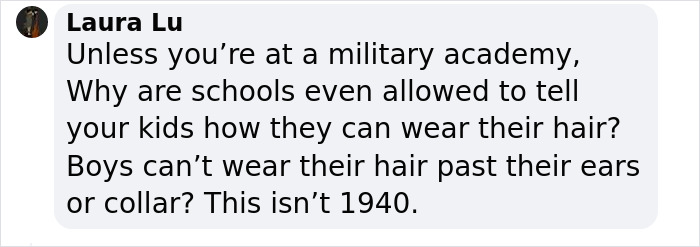Americans are currently honoring the annual Black History Month. But for one African American student in Texas, the celebration, dedicated to honoring and recognizing the achievements, contributions, and struggles of African Americans throughout history, was brutally overshadowed by disappointment after a judge ruled against his challenge to the school dress code regarding hair length. This incident has since highlighted a greater issue regarding marginalized people’s cultural identity.
A Texas judge ruled on Thursday (February 22) that the state’s CROWN Act did not make it unlawful for school dress codes to limit a student’s hair length.
The Texas CROWN Act, which stands for “Creating a Respectful and Open World for Natural Hair,” prohibits discrimination based on natural hairstyles and hair textures that are commonly associated with a particular race or culture.
The Act seeks to address instances where individuals, particularly those of African descent, have faced discrimination or bias in employment, education, and other areas due to their natural hair.
The Act specifically prohibits employers and educational institutions from enforcing grooming policies or dress codes that disproportionately impact individuals with natural hairstyles, such as afros, locs, braids, and twists.
Darryl George faced disappointment after a judge ruled against his challenge to his school’s dress code on hair length, leading to his suspension
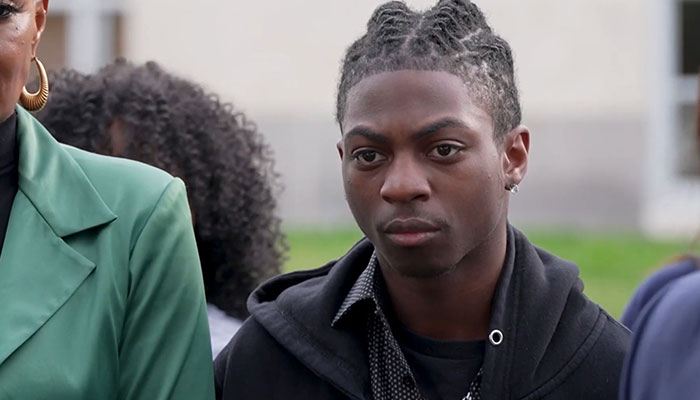
The judge’s decision came as a blow to Darryl George, a Houston-area high school student who sued the Barbers Hill Independent School District after he was suspended for months over the length of his locs hairstyle, CNN reported.
The George family did reportedly not make an appearance after the trial, but attorneys for the family said they intended to appeal the ruling.
At a news conference outside the courthouse, Candice Matthews, a spokesperson for the family, said the teenager had tears in his eyes as they had left the courtroom, as per CNN.
She said the family was disappointed, angered, and confused by the ruling. The lawyer explained: “Darryl made this statement and told me this straight up with tears in his eyes, ‘All because of my hair?’
“‘I can’t get my education because of hair? I cannot be around other peers and enjoy my junior year because of my hair?'”
The high school student sued Barbers Hill Independent School District after he was suspended over the length of his locs hairstyle
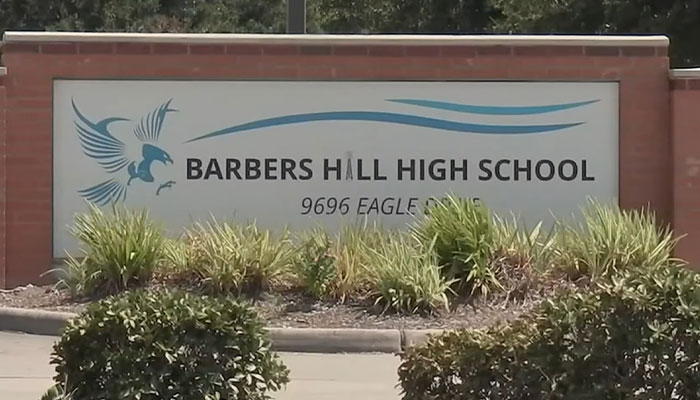
Matthews reportedly said that George will continue to serve in-school suspension and that his attorneys plan to file for an injunction in an upcoming federal civil rights lawsuit.
Barbers Hill Independent School District Superintendent Greg Poole said the ruling “validated our position that the district’s dress code does not violate the CROWN Act and that the CROWN Act does not give students unlimited self-expression.”
As per CNN, Poole further stated: “The U.S. Supreme Court recently ruled that affirmative action is a violation of the 14th Amendment, and we believe the same reasoning will eventually be applied to the CROWN Act.”
Poole had previously told the American broadcaster: “Hair length of male students is only constitutionally protected for Native American students.”
The judge ruled on February 22 that the state’s CROWN Act did not make it unlawful for school dress codes to limit a student’s hair length
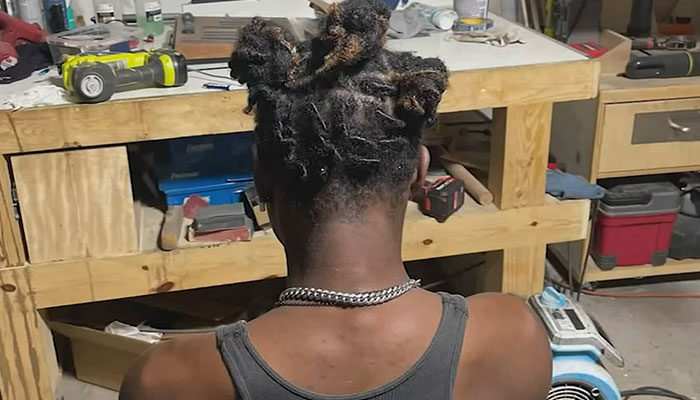
Ron Reynolds, a Texas state representative who was a co-author of the CROWN Act, which went into effect on September 1, 2023, testified at the trial on George’s behalf. The Democrat, who is also an African American man, reportedly said that he was disappointed by the outcome.
Reynolds said: “We will not stop. We will continue to speak truth to power,” adding that if George’s appeal is unsuccessful, lawmakers will file new legislation that will include hair length.
He continued: “We know the purpose of the bill. The purpose of the legislation is to protect students like Darryl.”
The Barbers Hill Independent School District’s dress code reportedly allows students to wear locs hairstyles but places limits on the length of male students’ hair.
The Texas CROWN Act prohibits discrimination based on natural hairstyles and hair textures that are commonly associated with a particular race or culture
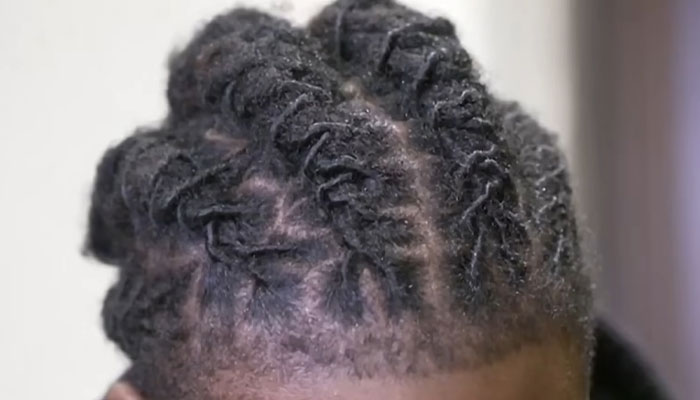
According to the school’s official policy: “Boy’s hair will not extend below the eyebrows, below the ear lobes, or below the top of a t-shirt collar.”
When it comes to hairstyle, the school also states that: “Hair must be neat, clean, and well-groomed, geometric or unusual patterns (including Mohawks) shaved or cut in the hair are not permitted, unnatural color or color variation in hair (i.e. scarlet, purple, blue, green, orange, etc.) will not be permitted, and ponytails or tails are not acceptable on male students.”
In September 2023, the school district filed a declaratory judgment lawsuit asking the court to decide if the “Barbers Hill Independent School District’s dress and grooming code policy limiting student hair length does not violate the CROWN Act,” CNN reported.
George and his family have also filed a federal civil rights lawsuit against school officials and Texas state leaders, including Greg Abbott, who is the governor of Texas, alleging they have failed to enforce the state law and have caused emotional distress.
Darryl George will continue to serve in-school suspension while his attorneys plan to file for an injunction in an upcoming federal civil rights lawsuit
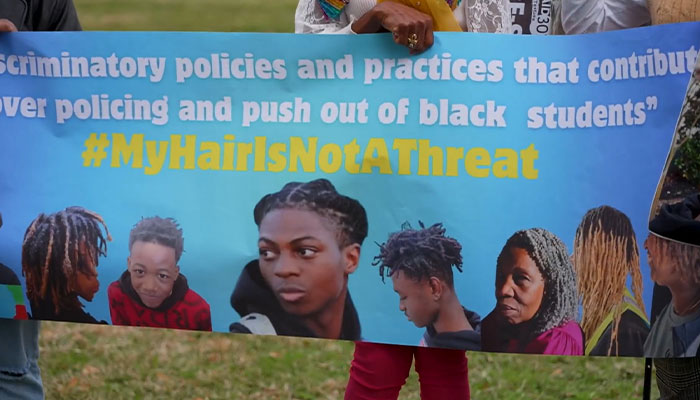
Before the trial began, George told reporters that spending most of this academic year isolated and on in-school suspension has been “very lonely,” CNN reported.
The 18-year-old said: “I started my dreads for a reason and that’s just to feel close to my people … to feel my ancestors.
“It just makes me feel angry, very angry … that throughout all these years, throughout all the fighting for the Black History that we’ve done, that we still have to do this again, and again, and again. It’s ridiculous.”
Darresha, who is Darryl’s mother, also became emotional as she thanked supporters “for making us stand strong.”
The George family was disappointed, angered, and confused by the ruling
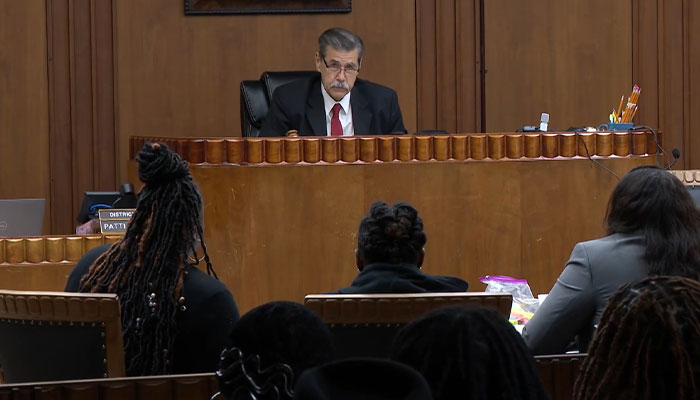
Supporters of Darryl George were seen protesting outside Superintendent Poole on Wednesday (February 22), holding a banner that read: “End discriminatory policies and practices that contribute to over-policing and push out black students. #MyHairIsNotaThreat.”
In January, Poole placed a full-page ad in the Houston Chronicle, arguing that “being an American requires conformity with the positive benefit of unity,” CNN reported.
He wrote in the ad: “Barbers Hill ISD will continue to make decisions to protect and fight for the rights of its community to set the standards and expectations for our school district even if that path takes us to the U.S. Supreme Court.”
According to the Legal Defense Fund (LDF), an American civil rights organization, hair discrimination is rooted in systemic racism and often helps preserve white spaces.
The LDF notes that policies that further hair discrimination advance white Anglo-Saxon Protestant cultural norms as the default norms to which everyone should adhere.
“I can’t get my education because of hair? I cannot be around other peers and enjoy my junior year because of my hair?’” Darryl said
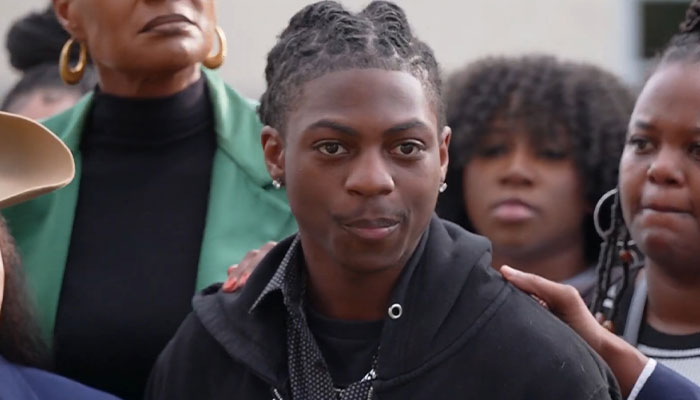
Additionally, hair and grooming policies that prohibit natural hairstyles, like afros, braids, Bantu knots, and locs, have been used to justify the removal of black children from classrooms and black adults from their employment.
The LDF further explains that black hair goes beyond just cultural differences. The waves, curls, coils, and ringlets that black hair can have cause it to have unique needs, it explains.
According to the organization, black people often choose to wear “protective hairstyles,” like braids, twists, and locs, to maintain healthy hair and prevent breakage.
These hairstyles can be worn for long stretches of time without constant manipulation. The alternative is often to use chemical or heat straighteners that can damage the hair in the short and long term.
Black hair is also an expression of identity and culture, the LDF says. It’s a representation of history and carries deep emotional significance. Historically, Black hair has carried a profound symbolism.
Moreover, cornrows, locs, twists, afros, bantu knots, and more all have historic connections to black pride, culture, religion, and history, which makes wearing these styles all the more significant.
Darryl George’s story sparked further reactions from readers







